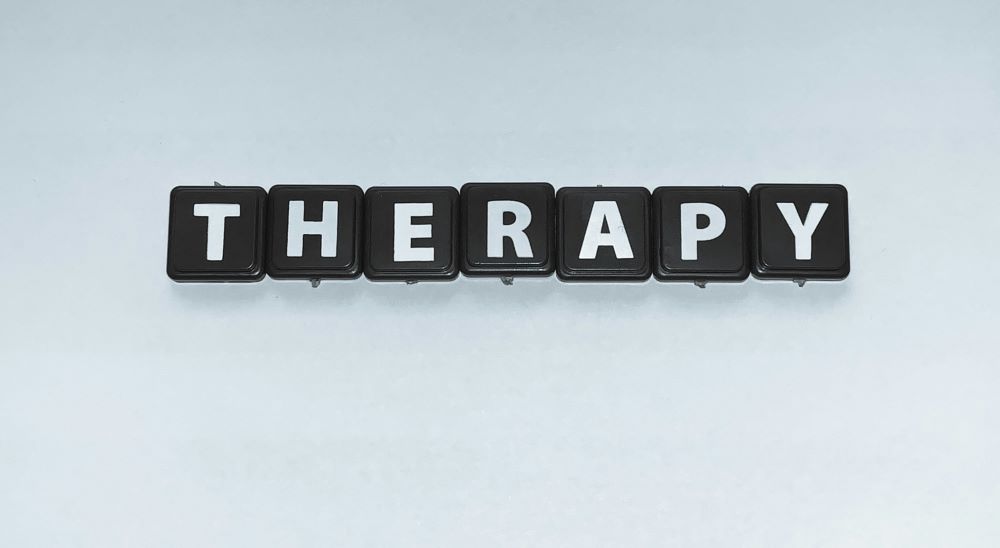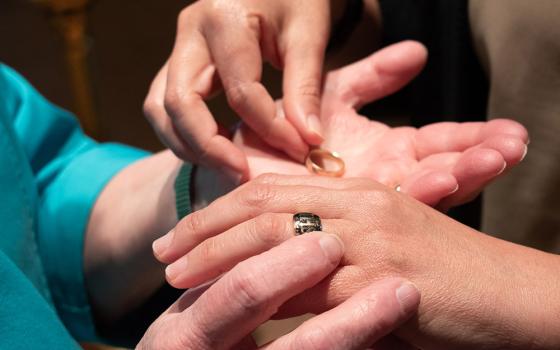
(Unsplash/Marcel Strauss)
I have been living the communal life for 14 years now. When I was a child, I always dreamed of having a bunch of older sisters. At the time, I did not think I would ever actually have them, and I was picturing a few cool older sisters who were like 5 to 10 years older. Now, I have many older sisters who are anywhere from 10 to 50+ years older than I! Nothing can quite prepare you when you enter religious life for intergenerational living with people who are not blood related to you. There are similarities because family or not, we're all human. There are also many differences as we come from different backgrounds, different upbringings, different parts of the country and world, and different cultures and practices. As I made my first vows, I came to understand that the communal life aspect of our lives as Catholic sisters might just be our biggest blessing. At times, though, it is also a source of heartache. And sometimes that heartache has been caused by mental health issues.
Now more than ever before, due to modern psychology, medicine and practices, we know how to practice good mental health and are aware of warning signs of a mental health breakdown. As part of the application process, a woman has to complete a psychological exam in order to be able to enter a religious community. This practice has not always been in place. I am sure it evolved as common practice as communities learned the importance of self-awareness and good mental health practices.
While in formation, I experienced a time when I needed a counselor. For the first time in my life, I went to a counselor. I am forever grateful to my leadership team who connected me to the counselor, who ended up helping me navigate my personal issues while I was in formation and learning to live in community. I do not like to think about what might have happened had I not been open to counseling. Among other things, I would have caused further distress and harm to my local community at the time, and I would have caused more distress to the wider community, including to my own family.
I eventually had a successful discharge from my first counselor. After the pandemic lockdown and as we were all getting back to "normal," I noticed that I was not feeling up to par and knew that I needed to find a new professional counselor to talk to. I learned the first time that the counselor does not take the place of family, friends or my sisters in community. They are in addition to these supports I have in place in my life. Sometimes, however, issues need to be sorted out in a professional setting with someone who is trained and helpful. I am grateful for this professional relationship in my life at this time because it helps me be a better person and, in turn, a better community member. I am not in formation any longer, and I approached my leadership on my own about going to counseling again. I do not know how long it would have taken for someone else to recommend it had I not gone on my own. I am sure that someone I am close to would have eventually suggested it to me as my mental health deteriorated, but maybe not.
As local community members, we need to encourage each other to practice good mental health. I believe this is one of the greatest services we can provide to each other. Community is a place of acceptance, love, care and vulnerability. If mental health issues or concerns go unchecked, life can become chaotic, isolating, sometimes abusive and get to the point where it is just miserable. Sometimes it's hard to talk to each other about deteriorating mental health or even physical health. It's not about power, control or making the other do something she does not want to do. It is instead about inviting the other to get the help she might need, whether for mental health issues, substance use issues or getting through the grieving process after the loss of a loved one. After the invitation, it's up to her as to what she is going to do. However, if she continues to cause chaos in the local community and is choosing not to get help, leadership eventually has to address the issue. If the person does not choose to get the help she needs, it is not fair for a local community to have to figure out how to handle the situation by itself, and it is also not fair for the person to be moved to different communities without getting help. More harm is caused if the problem continues to go unaddressed and the person keeps moving around.
Practicing good mental health is a process that is ongoing and ever-evolving for each of us. I hope that in our communal lives as religious women, we can help continue to erase the stigma associated with going to get help for our mental health issues. We are strong women who are leaders in every sense of the word, and when we are vulnerable together, we grow stronger. If you are on the journey of counseling, please keep up the good work! If you are close to someone who is doing the work and getting the help she needs, please continue to be a support she can rely on. Our communal life will continue to flourish as we practice good mental health together.






